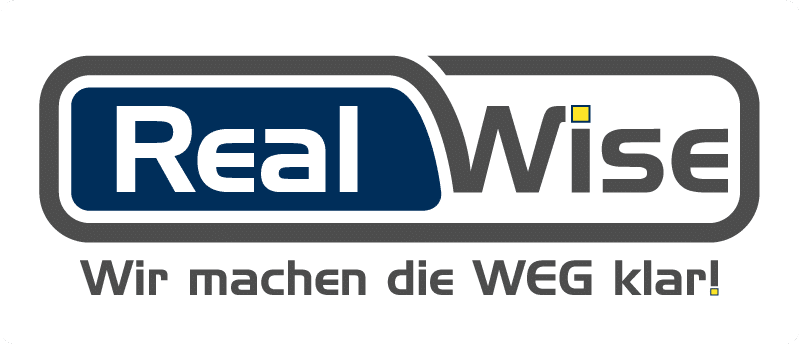Das „Parlament“ der Wohnungseigentümer-Gemeinschaft ist die Eigentümerversammlung. Hier sollen Beschlüsse demokratisch herbeigeführt werden. Der Verwalter ist verpflichtet, diese im Protokoll und in der Beschluss-Sammlung niederzuschreiben. Die Beschluss-Sammlung ist unverzüglich zu erstellen, weil sie – im Gegensatz zum Protokoll – nicht von einem Eigentümer zu unterschreiben ist.
Was tun, wenn vom Verwalter kein Protokoll kommt? Wie lange soll man warten?
Häufig müssen die Eigentümer (zu) lange auf das Protokoll warten. Je nachdem, wann sie das Protokoll erhalten, können gravierende rechtliche Nachteile drohen. Welche Optionen haben Eigentümer hierzu vor, während und nach der Versammlung?
Vor der Versammlung hat es sich bewährt, wenn sich zumindest ein Eigentümer bereit erklärt, ein Protokoll der Versammlung zu erstellen. Mittels eines Muster-Protokolls lässt sich bereits vor der Versammlung ein Leitfaden vorbereiten, der u.a. die Tagesordnungspunkte, evtl. bereits vorhandene Beschlussvorlagen und eine Eigentümerliste enthält.

In der Versammlung unterstützt ein Ausdruck dieses Leitfadens den Eigentümer beim Protokollieren. Der Feststellung der Beschlussfähigkeit folgt der Einstieg in die Tagesordnung. Wichtige Diskussionsbeiträge und Ergebnisse sind festzuhalten, bevor die Abstimmung nach Verlesung des Beschlussantrags erfolgt. In der Regel ergeben sich aus der Diskussion veränderte oder neue Beschlussformulierungen, die dann auf dem Leitfaden festgehalten werden können.
Welche Bedeutung hat die Verkündung des Beschlusses nach Feststellung des Abstimmungsergebnisses? – Die Wirksamkeit eines Beschlusses setzt dessen formelle Verkündung voraus. Ohne Verkündung sind Beschlüsse nicht gültig. Verkündete Beschlüsse sind grundsätzlich wirksam, bis sie durch ein Gericht aufgrund einer fristgemäßen Anfechtung für ungültig erklärt werden.
Eine Beschlussanfechtung muss binnen eines Monats seit Beschlussfassung, also dem Datum der Eigentümerversammlung, gerichtlich geltend gemacht werden.
Nur in bestimmten Ausnahmefällen kann davon abgewichen werden. Daraus ergibt sich für die Eigentümer die Frage, wie sie nach der Eigentümerversammlung innerhalb der Monats-Frist reagieren sollen, wenn trotz anderslautender Beteuerungen des Verwalters das Protokoll nicht oder abweichend zu den verkündeten Beschlüssen übersandt wird.
Eine Möglichkeit besteht darin, dass von den Eigentümern erstellte Protokoll – von möglichst vielen Eigentümern unterzeichnet – an den Verwalter zu senden mit einer knappen Fristsetzung für den Empfang des vom Verwalter unterzeichneten Protokolls. So soll innerhalb der gesetzlichen Monatsfrist genug Zeit bleiben, um eventuelle Protokolldifferenzen rasch zu erkennen und zu klären, damit auch ein oder mehrere Eigentümer das final abgestimmte Protokoll durch ihre Unterschrift mittragen können.

Wenn überhaupt nichts vom Verwalter kommt, kann jeder Eigentümer sein gesetzliches Recht auf Einsicht in die Verwaltungsunterlagen, hier insbesondere in die Beschluss-Sammlung geltend machen. Diese ist u.a. über alle Beschlüsse vollständig, übersichtlich und unverzüglich zu führen. In der Regel bedeutet dies, dass Beschlüsse nach bisheriger Rechtsprechung innerhalb einer Woche eingetragen werden müssen. Wenn der Verwalter diese Verpflichtung nicht ordnungsgemäß erfüllt, ist dies regelmäßig ein wichtiger Grund für seine Abberufung.
Falls diese Einsichtnahme beim Protokoll nicht weiterführt, kann eine Anfechtung der in der Beschluss-Sammlung vorgefundenen Beschlüsse geboten sein. Sofern hier noch keine Beschlüsse eingetragen sind, könnte die Anfechtung derjenigen Beschlüsse ein weiteres Mittel sein, die in der Einladung zur Eigentümerversammlung aufgeführt waren.
Die Entscheidung für oder gegen eine Beschlussanfechtung hängt von den Umständen des Einzelfalls ab und bedarf regelmäßig der anwaltlichen Unterstützung.
Durch Vorbereitung und Abstimmung der Eigentümer im Vorfeld kann während und nach der Versammlung schnell und eindeutig mit dem Verwalter kommuniziert werden. Dieser Beitrag führt nur einige der Optionen auf, Missverständnisse zu vermeiden, damit das in der Versammlung Beschlossene möglichst rasch umgesetzt werden kann.
Egal, ob Sie gerade eine Eigentümerversammlung vor- oder nachbereiten: Nur Ihr rechtzeitiges Handeln wahrt Ihre Interessen. Gerne geben wir Ihnen eine kostenlose Ersteinschätzung Ihrer Situation.
Das „Parlament“ der Wohnungseigentümer-Gemeinschaft ist die Eigentümerversammlung. Hier sollen Beschlüsse demokratisch herbeigeführt werden. Der Verwalter ist verpflichtet, diese im Protokoll und in der Beschluss-Sammlung niederzuschreiben. Die Beschluss-Sammlung ist unverzüglich zu erstellen, weil sie – im Gegensatz zum Protokoll – nicht von einem Eigentümer zu unterschreiben ist.
Was tun, wenn vom Verwalter kein Protokoll kommt? Wie lange soll man warten?
Häufig müssen die Eigentümer (zu) lange auf das Protokoll warten. Je nachdem, wann sie das Protokoll erhalten, können gravierende rechtliche Nachteile drohen. Welche Optionen haben Eigentümer hierzu vor, während und nach der Versammlung?
Vor der Versammlung hat es sich bewährt, wenn sich zumindest ein Eigentümer bereit erklärt, ein Protokoll der Versammlung zu erstellen. Mittels eines Muster-Protokolls lässt sich bereits vor der Versammlung ein Leitfaden vorbereiten, der u.a. die Tagesordnungspunkte, evtl. bereits vorhandene Beschlussvorlagen und eine Eigentümerliste enthält.

In der Versammlung unterstützt ein Ausdruck dieses Leitfadens den Eigentümer beim Protokollieren. Der Feststellung der Beschlussfähigkeit folgt der Einstieg in die Tagesordnung. Wichtige Diskussionsbeiträge und Ergebnisse sind festzuhalten, bevor die Abstimmung nach Verlesung des Beschlussantrags erfolgt. In der Regel ergeben sich aus der Diskussion veränderte oder neue Beschlussformulierungen, die dann auf dem Leitfaden festgehalten werden können.
Welche Bedeutung hat die Verkündung des Beschlusses nach Feststellung des Abstimmungsergebnisses? – Die Wirksamkeit eines Beschlusses setzt dessen formelle Verkündung voraus. Ohne Verkündung sind Beschlüsse nicht gültig. Verkündete Beschlüsse sind grundsätzlich wirksam, bis sie durch ein Gericht aufgrund einer fristgemäßen Anfechtung für ungültig erklärt werden.
Eine Beschlussanfechtung muss binnen eines Monats seit Beschlussfassung, also dem Datum der Eigentümerversammlung, gerichtlich geltend gemacht werden.
Nur in bestimmten Ausnahmefällen kann davon abgewichen werden. Daraus ergibt sich für die Eigentümer die Frage, wie sie nach der Eigentümerversammlung innerhalb der Monats-Frist reagieren sollen, wenn trotz anderslautender Beteuerungen des Verwalters das Protokoll nicht oder abweichend zu den verkündeten Beschlüssen übersandt wird.
Eine Möglichkeit besteht darin, dass von den Eigentümern erstellte Protokoll – von möglichst vielen Eigentümern unterzeichnet – an den Verwalter zu senden mit einer knappen Fristsetzung für den Empfang des vom Verwalter unterzeichneten Protokolls. So soll innerhalb der gesetzlichen Monatsfrist genug Zeit bleiben, um eventuelle Protokolldifferenzen rasch zu erkennen und zu klären, damit auch ein oder mehrere Eigentümer das final abgestimmte Protokoll durch ihre Unterschrift mittragen können.

Wenn überhaupt nichts vom Verwalter kommt, kann jeder Eigentümer sein gesetzliches Recht auf Einsicht in die Verwaltungsunterlagen, hier insbesondere in die Beschluss-Sammlung geltend machen. Diese ist u.a. über alle Beschlüsse vollständig, übersichtlich und unverzüglich zu führen. In der Regel bedeutet dies, dass Beschlüsse nach bisheriger Rechtsprechung innerhalb einer Woche eingetragen werden müssen. Wenn der Verwalter diese Verpflichtung nicht ordnungsgemäß erfüllt, ist dies regelmäßig ein wichtiger Grund für seine Abberufung.
Falls diese Einsichtnahme beim Protokoll nicht weiterführt, kann eine Anfechtung der in der Beschluss-Sammlung vorgefundenen Beschlüsse geboten sein. Sofern hier noch keine Beschlüsse eingetragen sind, könnte die Anfechtung derjenigen Beschlüsse ein weiteres Mittel sein, die in der Einladung zur Eigentümerversammlung aufgeführt waren.
Die Entscheidung für oder gegen eine Beschlussanfechtung hängt von den Umständen des Einzelfalls ab und bedarf regelmäßig der anwaltlichen Unterstützung.
Durch Vorbereitung und Abstimmung der Eigentümer im Vorfeld kann während und nach der Versammlung schnell und eindeutig mit dem Verwalter kommuniziert werden. Dieser Beitrag führt nur einige der Optionen auf, Missverständnisse zu vermeiden, damit das in der Versammlung Beschlossene möglichst rasch umgesetzt werden kann.
Egal, ob Sie gerade eine Eigentümerversammlung vor- oder nachbereiten: Nur Ihr rechtzeitiges Handeln wahrt Ihre Interessen. Gerne geben wir Ihnen eine kostenlose Ersteinschätzung Ihrer Situation.
